
New booklet just released from Act for Freedom / Elephant Editions, all about the struggle in Indonesia against the mega-project threatening the coastal farming communities of Kulon Progo, featuring action reports, communiques, international solidarity and more.
Download the booklet from 325
--Booklet + Cover
http://325.nostate.net/library/indonesia-booklet.pdf
http://325.nostate.net/library/indonesia-cover.pdf
The booklet is designed in a format to be printed out and reproduced. Please distribute.
Freedom for Tukijo and the Yogyakarta 3 rebels (Indonesia)
This important call-out for revolutionary solidarity with the struggle in Indonesia has been translated into several languages which can be found on the website Contra-Info, in Greek, Spanish, Italian, French, German and Portuguese.
http://en.contrainfo.espiv.net/
http://gr.contrainfo.espiv.net/2011/10/17/indonesia-freedom-for-tukijo-and-the-yogyakarta-3-rebels
http://es.contrainfo.espiv.net/2011/10/17/indonesia-libertad-para-tukijo-y-los-tres-rebeldes-de-yogyagarta
http://it.contrainfo.espiv.net/2011/10/17/indonesia-liberta-per-tukijo-e-i-3-ribelli-di-yogyakarta
http://fr.contrainfo.espiv.net/2011/10/16/indonesie-liberte-pour-tukijo-et-pour-les-rebelles-de-yogyakarta
http://de.contrainfo.espiv.net/2011/10/17/freiheit-fur-tukijo-und-die-yogyakarta-3-rebellen-indonesien
October 7, 2011. At 2 am, Bank Rakyat Indonesia (BRI) ATM Bank in Sleman, Yogyakarta, is set on fire. The fire causes an explosion in the unit which destroys the premises. The sabotage is just one more instance of resistance in a country which is destroying it’s trees, mountains and coastlines for profit whilst oppressing its people.
http://waronsociety.noblogs.org/post/2011/10/10/indonesia-irf-fai-indonesia-claims-new-international-solidarity-fire-attack-against-bri-bank-yogyakarta-3-comrades-arrested/
Now 3 people are arrested. They are all accused of being involved in damaging the bank. We are not interested in finding out if the prisoners are “guilty” or not, nor of the extent of their “crime”. We will leave such speculation to the inquisitors and their servants in the press. We don’t need to know the details of the entire situation to know that as long as the state and the banks get rich from exploitation, there will always be those who will go against their power and refuse to collaborate. It is enough that these people are imprisoned, to wish that not just their prison, but every prison ceases to exist. “Crime” is no food on the table and the bosses taking the lion’s share. “Crime” is clear-cut forests and mining companies who beat and kill who they like with the help of the police. Freedom is fighting back and reclaiming your life from oppression.
What we know is that Indonesia is a regime which is propped up by western capitalists and militarists. It is a nation which tortures and massacres its opposition, like every state that can get away with it where it can.
Kulon Progo is a farming area near Yogyakarta, and in 2005 Jogja Magasa Mining and Indomines metal industries wanted to take the land for their industry. The farmers there didn’t give their land to the industrial company because they didn’t want nature to be destroyed by them. Many times the farmers tried to solve this without any riots, but it’s not working. Now they are ready to defend their lives.
It started when the company paid 300 people to destroy the houses of farmers and all the plants there.
It made all the farmers get angry and also lots of other people besides. Human dignity and nature just colonized by money, and there will never be any help to let the farmers survive. The police just covered up the people who were attacking the farmers because the company paid off the police. A typical story.
Tukijo was a farmer who was arrested and imprisoned just because he was vocal in the demonstrations against this situation. The people in Indonesia have made many activities around this matter : demonstrations, articles, movies, graffiti and property damage against the profiteering companies.
The farmers and the people of Kulon Progo, Pandang Raya, West Papua, Bima and elsewhere, are appealing for international solidarity and complicity in their struggle alongside the anarchists and anti-capitalists, who are all against the violent terror of the Indonesian bosses, their paid murderers and corporate backers. Don’t let them fight alone!
In accordance with the wishes of the farmers, we demand the land is given back to the farmers and freedom for our friends who are in prison because of this.
The State-Corporations-Military-Police are the Terrorists!
Freedom for Tukijo and those accused of attacking the BRI ATM Bank!
A few anarchists in solidarity.
http://325.nostate.net/?p=3284
Kulon Progo Self-organised Struggle Against Neoliberal Megaproject (Indonesia)
We call for the strongest possible international solidarity with the fighting peasants of Kulon Progo, Indonesia. They are organising to defend their lives and the environment from the ruthless mining operations of the exploiting capitalists and their state backers, with an absolute rejection of leftism and political wrangling. Let’s internationalise the anti-capitalist resistance!
Received via email, please spread and translate:
Dear Comrades,
We are small loose collective (informal) in Yogyakarta, located in central Java, a region considered as “special territory” inside the democratic state due to its historical role as a Kingdom of Java, and for the same reason, some of the old feudal rules still preserved inside the so called democratic state.
Since 2007 we have involved in creating solidarity with the peasant struggle in Kulon Progo which is located inside Yogyakarta region. The struggle was about resisting iron mining which ARE a joint cooperation of Australian Kimberly Diamond (Indomines) and its local “puppet” branch company named “Jogja Magasa Iron (Mining)”. Jogja Magasa Iron are owned by the Sultan of Yogyakarta’s (Sri Sultan Hamengkubowono X) daughter, GKR Pembayun.
The Mega-Project
The planning of Iron mines are just a gateway for other mega-project to come, that we recognised as a development proposal from Asian Development Bank. Kulon Progo territorial are a crucial point in making further capitalist infrastructure in java, that is to create alternative highways, international airport, and other industrial infrastructure that would be a pivotal role for other mining and industrial project in surrounding area. These projects involved companies and investors from other countries include: Czech, Australia, and South Korea (some of the foreign investor that we already acknowledge).
Agrarian Conflict
As laws are easily made up by the ruling class. The former agrarian laws that protects peasants land after the independence were threatened to change due to the political-economic interest of the elites:
In according the original to state laws, the peasants have the most legality to cultivate the land. But it is not really permanent since there is also a law that says “Every natural resources are owned by the state”. Feudal claiming of the land by the Sultan also create a mystification of “Special Territory” and its historical justification as a kingdom. Which fortunately until now, no law were officialy justifying the Sultan’s need to officially owned all of the land in Yogyakarta: Wonosari, Bantul, Sleman, Kulon Progo.
Political Atmosphere
Recently there have been a political “fight” between the pro’s and con’s of the democratic-state take over of Yogyakarta since Sultan wanted the government to approved its feudal inheritance of land (so that the mining project and other mega-project would be smoothened by him and he himself will play the` major role for other mega-projects planned in Yogyakarta). This create an illusion of the democratic state versus the special territory of Yogyakarta. Some important point to be considered is that Yogyakarta accomodates intellectual life and the city received the central reputation for student city due to the existence of the most good education and universities across Indonesia. For example, in urban areas of Yogyakarta, most of its inhabitants are students from all over Indonesia. This creates a multicultural relationship and a growing intellectual life and lively art scene. In the recent spectacle of opposition between Sultan and President, the Sultan were praised by the “bribed” progressive academics, the so-called “radical artists”, and the opportunist leftist, as more democratic, progressive, pluralist (and other nonsense) than the president on chair. This tendency were falsely seen by many “progressives” as true fight against the regime and most of them were rallying in solidarity for the “ETERNAL” preservation of special territory of Yogyakarta and the eternal authority of the Sultan’s blood to rule Yogyakarta inside Indonesian democratic state and of course with some hidden from public planned laws, that is: an eternal ownership of the so called Sultan and Paku alaman’s ground. To our view, as one of its inhabitants, if pluralism and multiculturalism, and also the freedom of expression were really exist, it has nothing to do with the Sultan. It simply an urbanised life of the students with various backgrounds of culture that made it possible, and in some cases cultural and ethnic clashes also appear, just as in other major cities in Java. But since most of Yogyakarta’s inhabitants are students and not workers, its already explained that free-time can create “special” atmosphere and not because of its feudalistic special territory where a very low-wage were praised as dedication and loyalty to the Sultan.
The Struggle
(see “A Tale of Sand” , a brief history and struggle of Kulon Progo’s peasants)
--Interview
http://hidupbiasa.blogspot.com/2010/11/kulon-progo-government-forces-us-to.html
A Tale of Sand
http://hidupbiasa.blogspot.com/2009/12/tale-of-sand.html
Approximately 10 thousand people will lose their land and house due to the feudal claiming of Sultan and Paku alaman ground. Ever since the issue of the mining project and its preliminary operation were conducted, the peasants of Kulon Progo were resisting very fiercely, these peasants notable came from several villages: Trisik, Karangwuni, Bugel, Pleret, Garongan, Karang Sewu. The mining projects threatened to make use of the land as much as 2987 – 3000 acres of land. The struggle which was started since 2007 creates a peasant umbrella group named PPLP-KP (Coastal Farmers Association of Kulon Progo). PPLP-KP such as the daily organizing of the noted Kulon Progo’s village, though still had informal hierarchy (such as those who are considered as elders), were very horizontal in nature. These villages have their tradition of consensual meetings where every village send their delegates and were responsible back to its people, and this is not function as leader. Often, in some serious events, these informal leaders cannot do anything to calm down the peasants anger.
PPLP-KP have conducted lots of demonstration, and in almost every demonstration, thousands of people always showed up. These solid network of village people were pure and sterilized from outside interference such as NGOs, political parties, and leftist organisations. And the peasants council have made it clear that to maintain their solid unity, PPLP-KP and the struggle of Kulon Progo’s peasants should be controlled by the peasant itself and not some organisation or other specialist. This strategy were seen as crucial so as to avoid any danger in the future if there’s any hidden political interest in every political organisation that would want to interfere the struggle. And by time it is proven right, as the struggle became more solid through the years and some of the political organisation have showed their true face. Also to be noted, since the struggle have emerged, local authority belongs to the local or central state were no more functioning as the villagers decided to control everything into their own hands.
Criminalisation and the so called “Independent Advocates” (LBH)
In recent cases of struggle, some incidents have occurred. Every night and day, men and women patrolled their villages if there’s any government or other institution responsible come to their village without any permission from the villagers. During December last year and January this year, two incidents happened where the investor’s car’s were damaged and some of the person inside the car were held hostages for three hours. The villagers have made their own laws, and according to them, if any institution wants to come to the area, especially those who are involved in the megaproject, should face the community first, otherwise it would be an offense to the community law.
16 December 2010: held hostage six cars belonging to the investors and damage some of the cars
17 December 2010: The outraged community destroyed the mining office and made sure it can’t be operating again.
12 January 2011: Community destroyed the company car of the company researchers.
These action conducted by the villagers were criminalised and the company have hired a well known lawyer in Indonesia to sue the community. Every time there’s a case such as this, the law aid institution officially named LBH (Lembaga Bantuan Hukum) were trying to convince the community that a successful struggle would be inside the law and further illegal acts should be stopped—although police only issue a warrant and never able or dare to pick-up the suspect or witness, as the community would be the human shield if there’s any individuals would be hostages of the state because of defending their own rights.
LBH is a problem for the struggle, not only because they believe in political struggle in front of the court, and they firm attachment to the laws and state, but because most of the individual lawyers in that institution involved in the network of institutional leftist and leftist-environmental organisation which historically have bad reputation in the grassroot: political intrigues, corruption, dependency, etc. In recent cases they were trying to influence some of the community members to expel the small minority of anti-authoritarians who are deeply involved with the PPLP-KP but didn’t have any organisation whatsoever. Fortunately, the conversation were recorded by the community itself, and it was heard in their internal meetings.
The LBH were trying to expel the small minority of anti-authoritarians because of their hostile position to every network of NGO’S and other institutional leftist that is so often in close connection with the elites and politicians. LBH were accusing the anarchists of provoking the villagers to conduct illegal actions, of which all of these accusation are based on lies, because most of these actions were conducted spontaneously and that the community itself are already hot headed in their position against the minings and its people. LBH also wanted their network to infiltrate the struggle but were at pains because of the agreement of the PPLP-KP councils to not accept any interference of NGO’S or other political institution. LBH are problematic to the struggle, which its narrow political interest cannot be an independent help for the movement. It only can make intrigues to the whole movement and threathening its solid and self-organised struggle.
Global Solidarity
Considering these political implications and the revolutionary tendency of the peasant struggle, we urge to have a solid international solidarity. And on the behalf of the peasants, we need input on how to challenge these laws on an international scale. We have made infrastructure of struggle in the village: community radio and social center. And also there’s twice of solidarity actions conducted by our comrades in Melbourne and Perth (due to the involvement of Australian Kimberly Diamond). We are in dire need of help to make this struggle successful without any interference of the leftist institution and its disgusting network. Please contact us for further collaboration and we will update you with a more extensive and comprehensive data of the struggle. This letter is not our own initiative but was a result of our meetings with the PPLP-KP.
On behalf of the peasants,
Kulon Progo Solidarity Network
S.A.K.S.I
website: http://petanimerdeka.tk
Email: petanimerdeka(AT)yahoo.com
Mobile: +6285729818518
http://325.nostate.net/?p=1733
http://325.nostate.net/
Soli-website for Kulon Progo.
http://kulonprogotolaktambangbesi.wordpress.com/



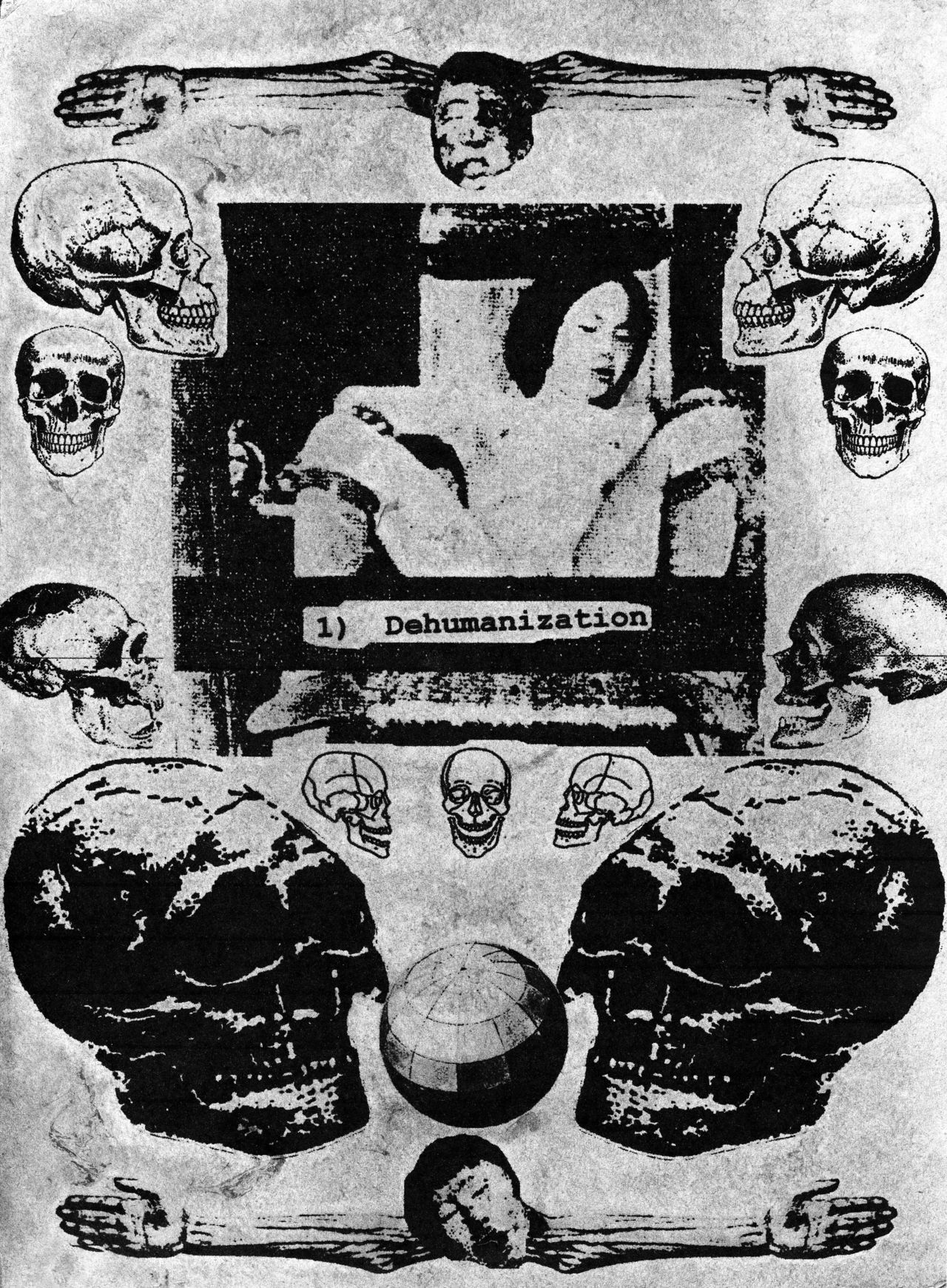



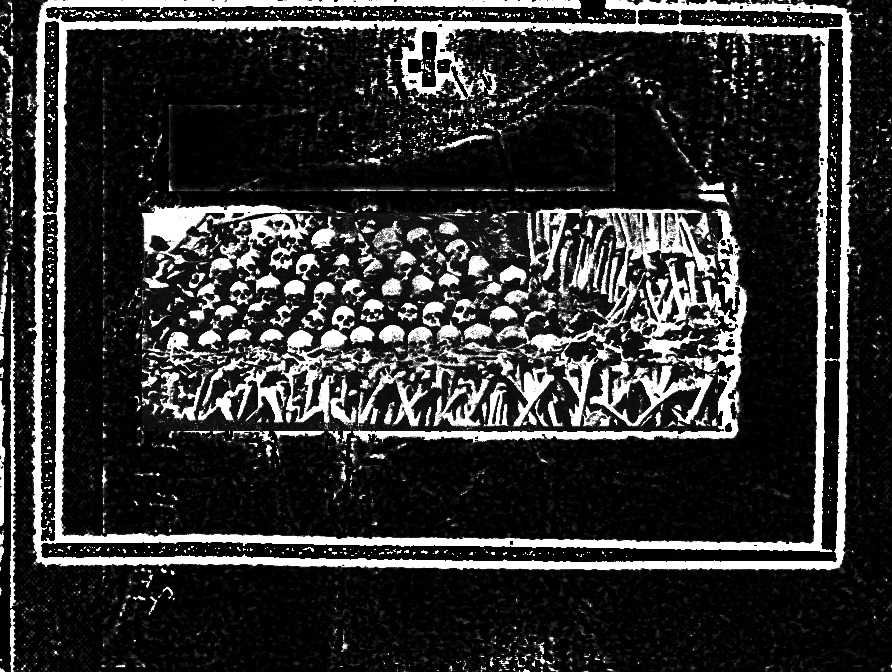
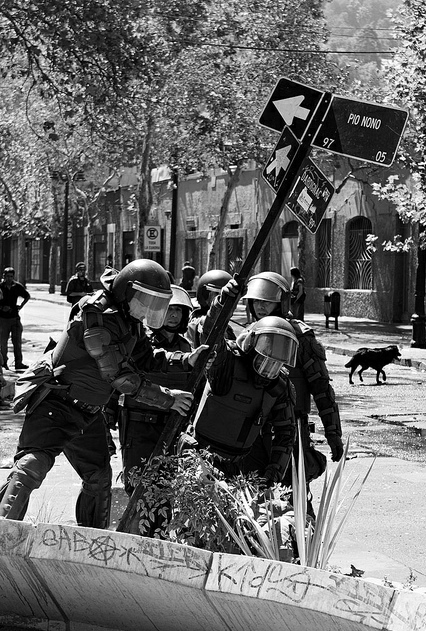



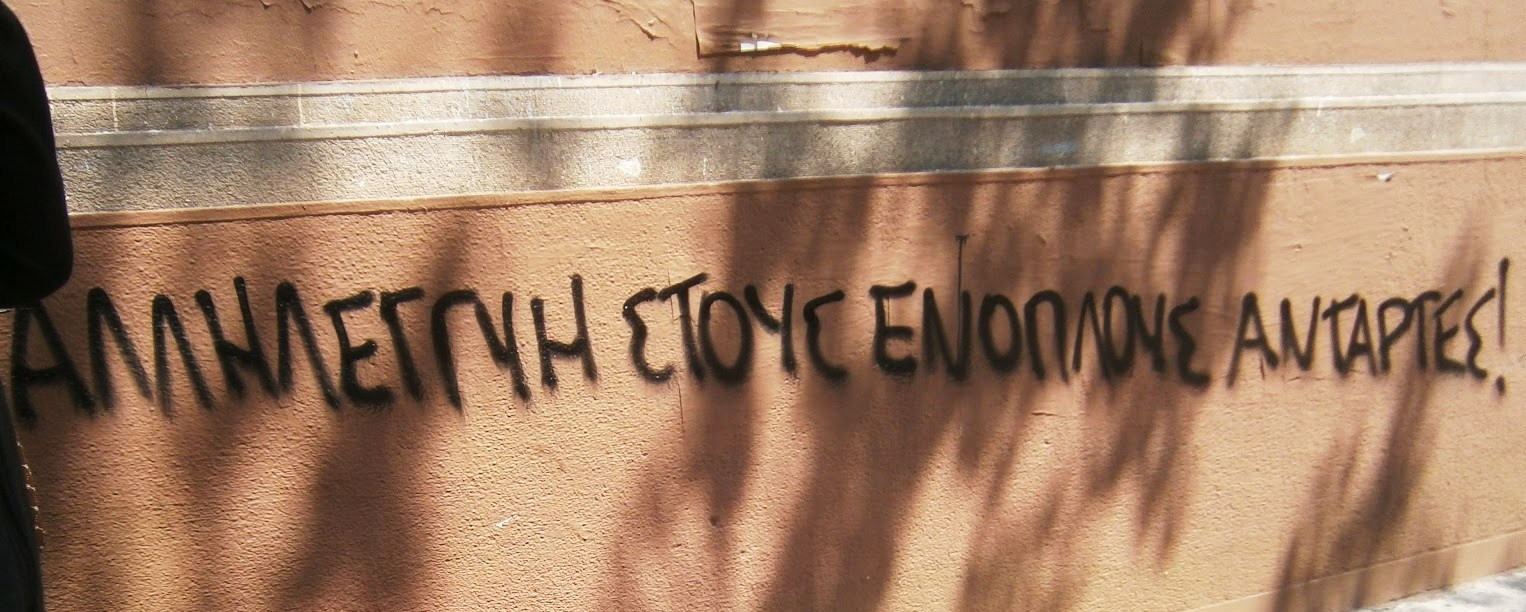

![Eurorepressione - Sulla conferenza a Den Haag sul tema "Anarchia" [corretto]](http://25.media.tumblr.com/tumblr_m0jvngOXtY1qa2163o1_1280.jpg)
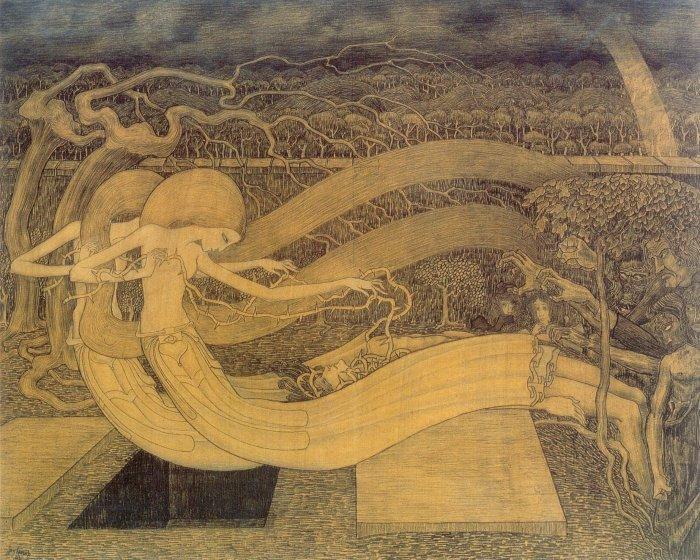
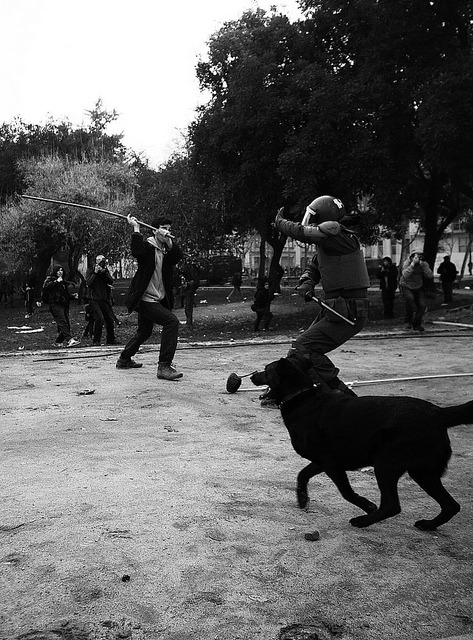
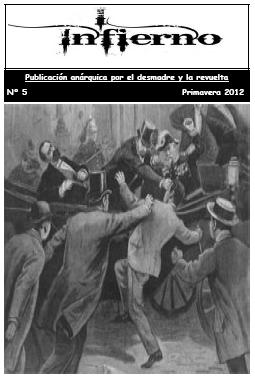
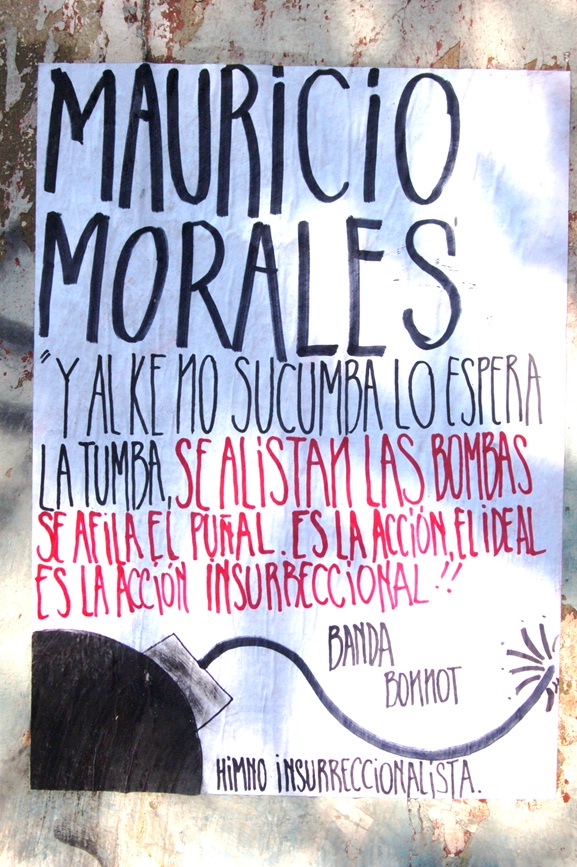
![A tres años de la Partida de Mauricio Morales: De la Memoria a la Calle [Stgo.]](http://metiendoruido.com/wp-content/uploads/2012/05/mmacividad.jpg)
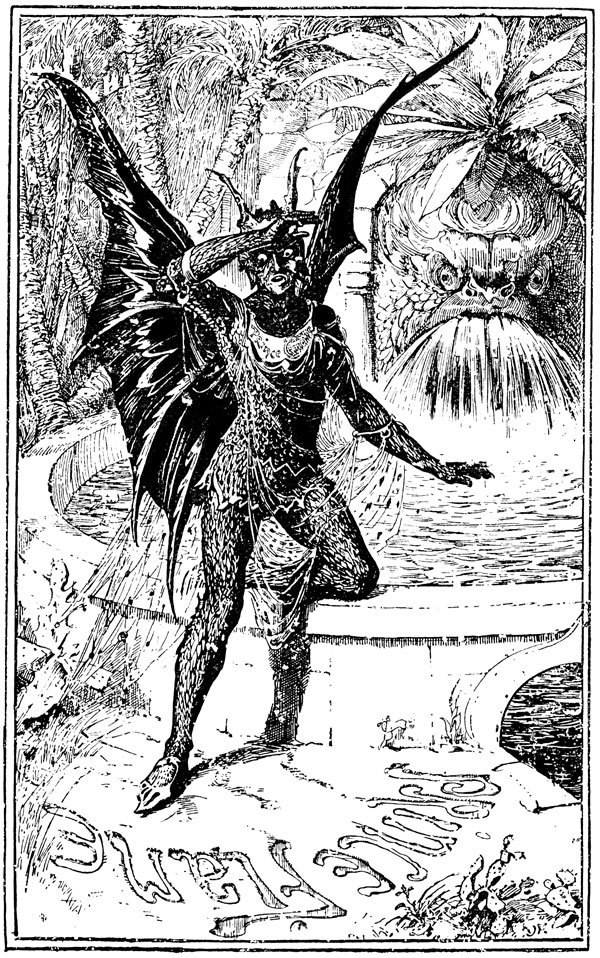




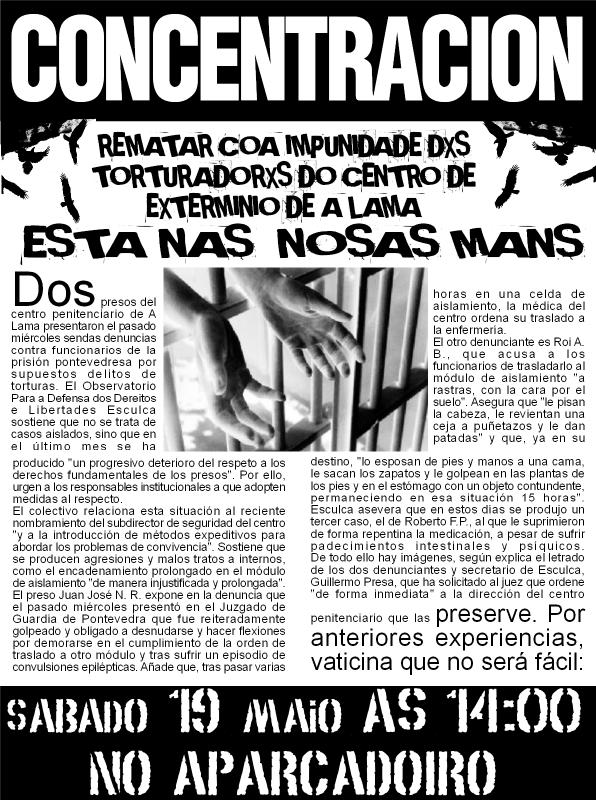

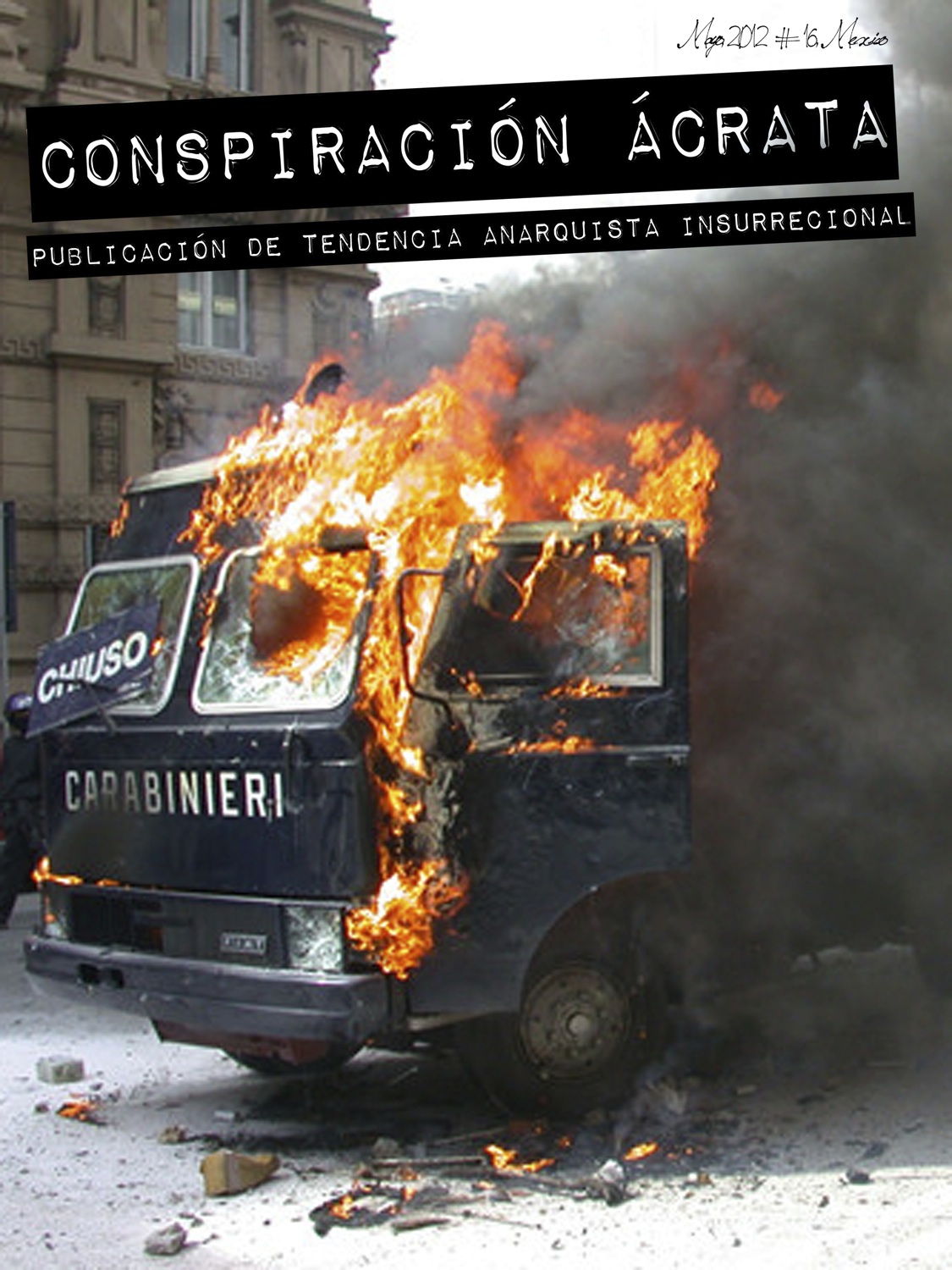


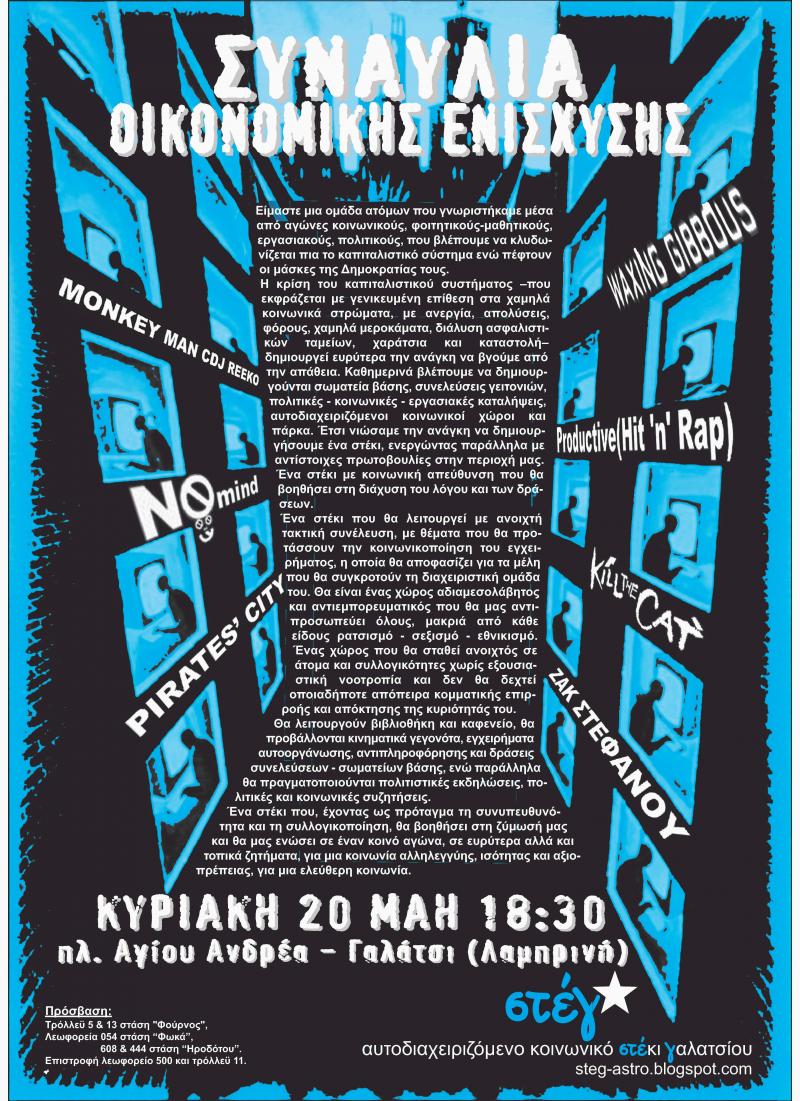








Nessun commento:
Posta un commento